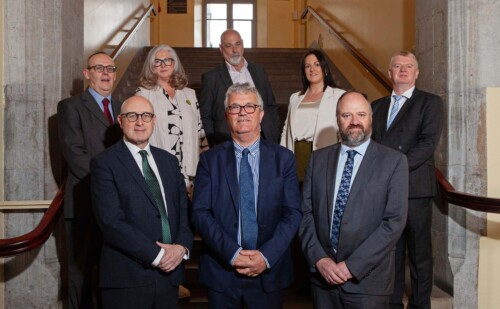HIGHER EDUCATION – KEY FACTS AND FIGURES 2021/2022
By Maura O'Shea
Posted: 12 September, 2022

Courses in the areas of Business, Administration and Law remain the most popular among higher education students in Ireland, new data has revealed.
The data, released by the Higher Education Authority (HEA), shows that the most popular subject group studied by students in 2021/2022 is Business, Administration and Law (20.6%), followed by Health and Welfare (17.5%).
Arts and Humanities accounts for 13.9% of students and Engineering, Manufacturing and Construction courses account for 11.7% of students.
In 2020/21, 22.3% of students studied Business, Administration & Law, and 17.3% studied Health & Welfare.
These annual statistics, compiled by the HEA, provide an overview of both the student and graduate population over the past 7 years. These look at the numbers of students enrolled in a particular year, what students are studying, where students are from, their route to higher education, the number of graduates in a year, and the qualifications that graduates achieve.
In 2021/22, there were 246,299 students – up 0.3% on 2020/21 figures. Almost two-thirds were studying Honours Degrees (61.6%), and 11.3% were studying a Taught Masters. In 2020/21, these were 60.8% and 10.8% respectively.
Ordinary Degrees are steadily declining in popularity (6.8% in 2021/22 and 7.3% in 2020/21, compared to 11.3% of 2015/16 students).
Almost a quarter of students graduating from higher education earn a First-Class Honours degree.
For the class of 2021, 23.5% of students graduated with a First-Class Honours degree – up from 20.9% for the Class of 2020, and up from 15.9% for the Class of 2015.
The gender gap has continued to widen, with females accounting for 54.5% of the overall student population. This is up from 54.0% in 2020/21, and up from 51.4% in 2015/16.
Internationally domiciled students made up 12.4% of the student population. This is up from 10.3% in 2020/21.
The US is the most common country of origin for Internationally domiciled students (14.8%). This is followed by India, and China. In 2020/21, the most common country of origin was China (13.5%), followed by the UK, and India.
UCD is the largest higher education institution, with more than 29,000 students. This is followed closely by TU Dublin with more than 26,000 students.
Mature students accounted for 6.6% of new entrants. This is down from 7.0% in 2020/21. This has steadily declined from 10.9% in 2015/16.
Nearly 3 in 4 new entrants responded to the Equal Access Survey. This is a voluntary survey asked of first-year undergraduate students, gathering information on disability, and ethnicity, for example. This information is collected to measure progress on national targets relating to equity of access to higher education.
This response rate is an improvement from the 68.1% response rate in 2020/21. Of the 2021/22 respondents, 17.8% reported a disability. In 2020/21, 18.1% reported a disability.
For the class of 2021, there were 88,638 graduates (up 8.8% from 81,461 for the class of 2020. More than 2 in 5 graduated with an Honours Degree (41.3%). Almost 1 in 5 graduated with a Taught Masters (19.7%). For the class of 2020, these were 43.4%, and 19.7%, respectively.
CEO of the HEA, Dr Alan Wall welcomed the publication of this new data.
“Over 45,000 new entrants enrolled in higher education in 2021/22. The number of graduates has increased by 9%, from over 81,000 to more than 88,000 in 2021/22. Internationally domiciled students made up 12% of the student population, and it is positive to see that this has reverted to pre-pandemic levels. Key trends over the last seven years are presented in this interactive dashboard, and the HEA wishes to thank the higher education institutions for their ongoing support and collaboration in providing such important data,” said Dr Wall.


